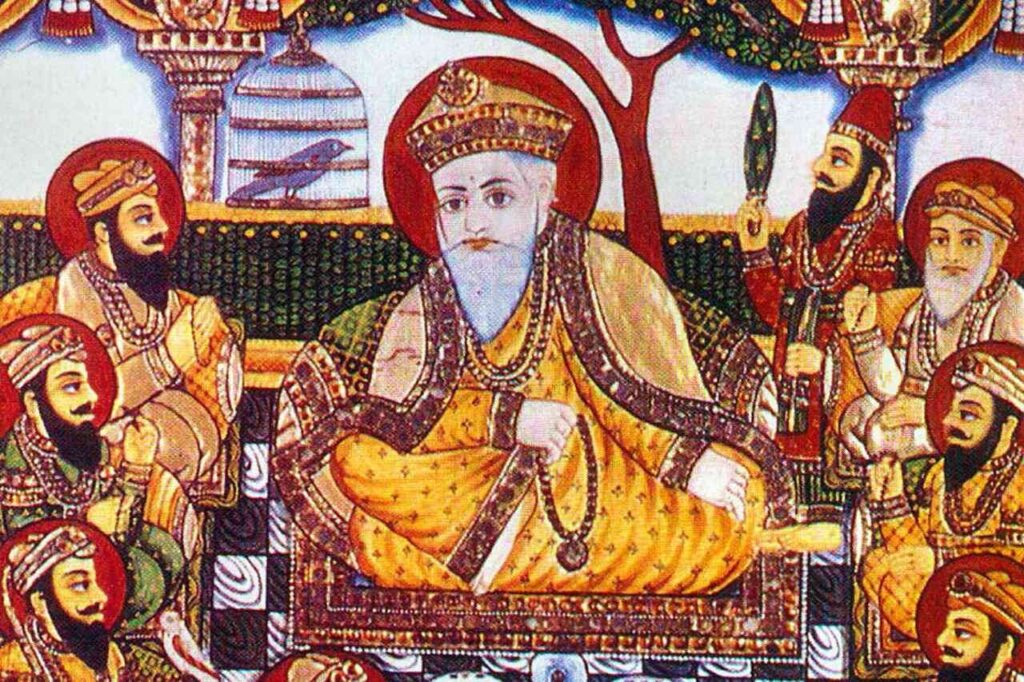
Sikhism
Sikhism is classified as an Indian religion or Dharmic religion along with Buddhism, Hinduism, and Jainism. The basis of Sikhism lies in the teachings of Guru Nanak and his successors. Sikh ethics emphasize the congruence between spiritual development and everyday moral conduct.
Sikh in Punjabi means “learner,” and those who joined the Sikh community, or Panth (“Path”), were people who sought spiritual guidance. Sikhs claim that their tradition has always been separate from Hinduism. Nevertheless, many Western scholars argue that in its earliest stage Sikhism was a movement within the Hindu tradition; Nanak, they point out, was raised a Hindu and eventually belonged to the Sant tradition of northern India, a movement associated with the great poet and mystic Kabir (1440–1518). The Sants, most of whom were poor, dispossessed, and illiterate, composed hymns of great beauty expressing their experience of the divine, which they saw in all things. Their tradition drew heavily on the Vaishnava bhakti (the devotional movement within the Hindu tradition that worships the god Vishnu), though there were important differences between the two. Like the followers of bhakti, the Sants believed that devotion to God is essential to liberation from the cycle of rebirth in which all human beings are trapped; unlike the followers of bhakti, however, the Sants maintained that God is nirgun (“without form”) and not sagun (“with form”). For the Sants, God can be neither incarnated nor represented in concrete terms.
